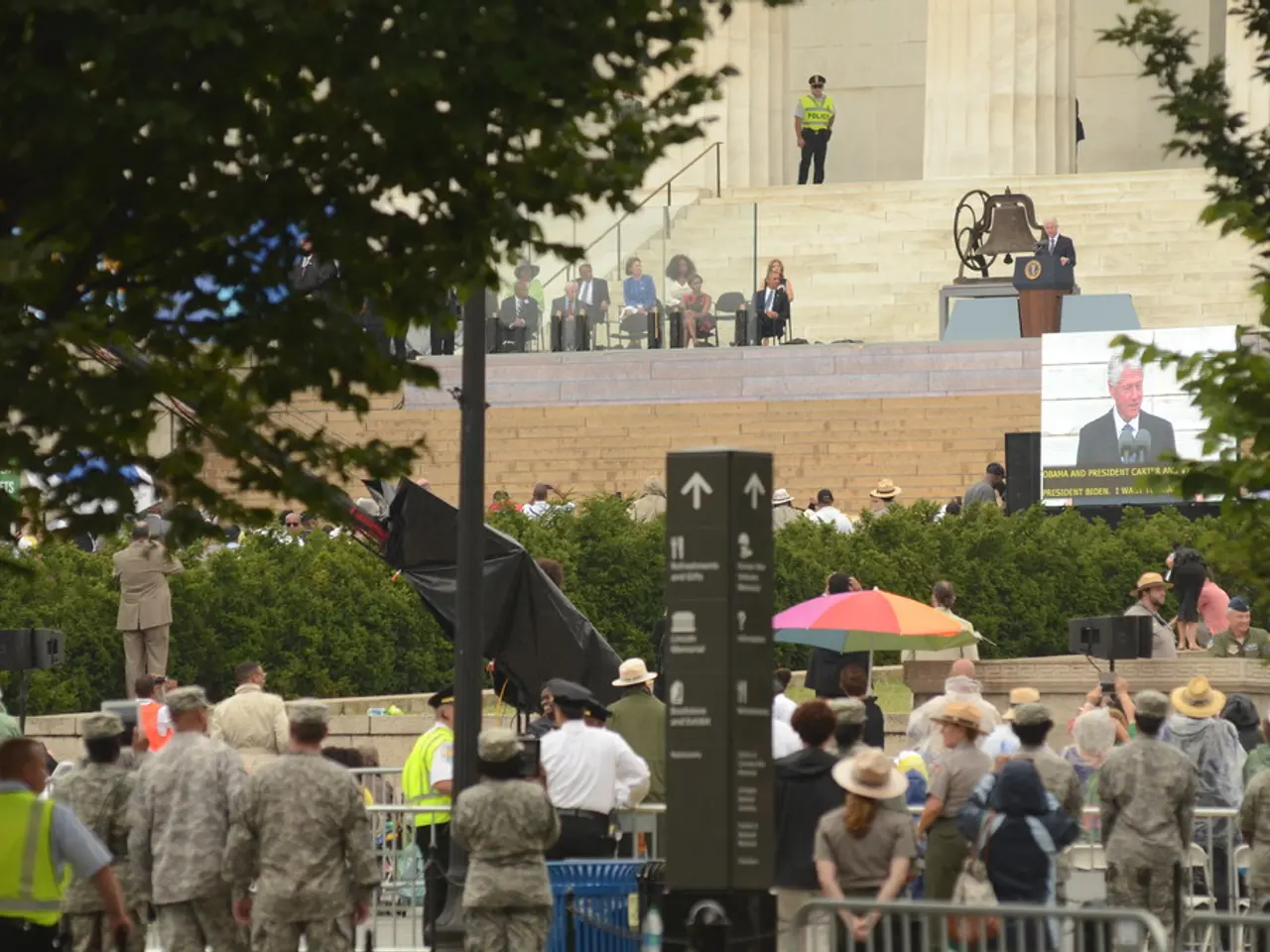Trump's Approach to Bargaining during His Presidency Inauguration
==============================================================================
In the early days of his presidency, Donald J. Trump's negotiating style was characterised by a hard-line, power-advantaged approach that often disregarded traditional protocols and focused on obtaining small initial concessions to feed his ego rather than substantive gains.
During the presidential race, Trump's fluctuating positions on key issues made his negotiating style unclear. However, in the months between his election and taking office, Trump engaged in several negotiations that offered clues about his approach.
One of the key aspects of his style was a disregard for protocol. Trump bypassed traditional diplomatic channels and procedures, reaching out directly to executives like United Technologies on behalf of Carrier jobs. This approach was evident in his phone call with Taiwanese president Tsai Ing-wen, a departure from the U.S. government's adherence to the "One China" principle.
Another characteristic was a focus on symbolic small wins. Trump settled for small initial concessions accompanied by emotional gratification, which was viewed as feeding his ego rather than yielding substantive economic wins. This was seen in the Carrier jobs deal, where he promised to persuade the company to cancel plans to outsource jobs to Mexico during the campaign.
Trump's style also involved hardline demands with few concessions. In NAFTA renegotiations, he made extreme demands (e.g., the "sunset clause") while offering little flexibility on core issues, prolonging negotiations.
Threats and displays of power were also a part of Trump's negotiating strategy. He used aggressive posturing and threats, such as tariffs and "fire and fury" rhetoric. However, these were often ultimately softened or delayed for strategic reasons.
Negotiation as a show of power was another important aspect of Trump's strategy. His aim was to project power advantage, making it important for counterparts to acknowledge his position and reputation, which influenced negotiation dynamics.
The Carrier deal resulted in 800 jobs being kept in the United States, but 1,300 jobs were still moved to Mexico, according to the Wall Street Journal. Despite this, the deal offered insights into Trump's negotiating style and its potential impact on business negotiations.
In a 2019 article published in the Negotiation Journal, Thomas Kochan, a professor at the MIT Sloan School of Management, suggested that savvy business leaders will continue to give those who adopt this negotiating style what they are looking for - emotional gratification rather than substantive gains.
Trump's calls with world leaders were reportedly in random order and without identity verification, which created anxiety in Europe and fueled speculation about his team's preparedness. The phone call with Tsai Ing-wen was deliberately orchestrated by Taiwan, according to the New York Times.
Before becoming U.S. president, Trump had considerable dealmaking experience in the business world. The article offers valuable insights into Trump's negotiating style and its potential impact on business negotiations.
Read also:
- Massive 8.8 earthquake hits off the coast of Russia's Kamchatka Peninsula, prompting Japan to issue a tsunami alert.
- Court petitions to reverse established decision on same-sex marriage legalization
- Proposed Standardization of Food Labeling Laws Among Member States by the Commission
- Experimenting with Merz's Germany has stretched into an extended period of time, resembling a numerous three-month duration.







